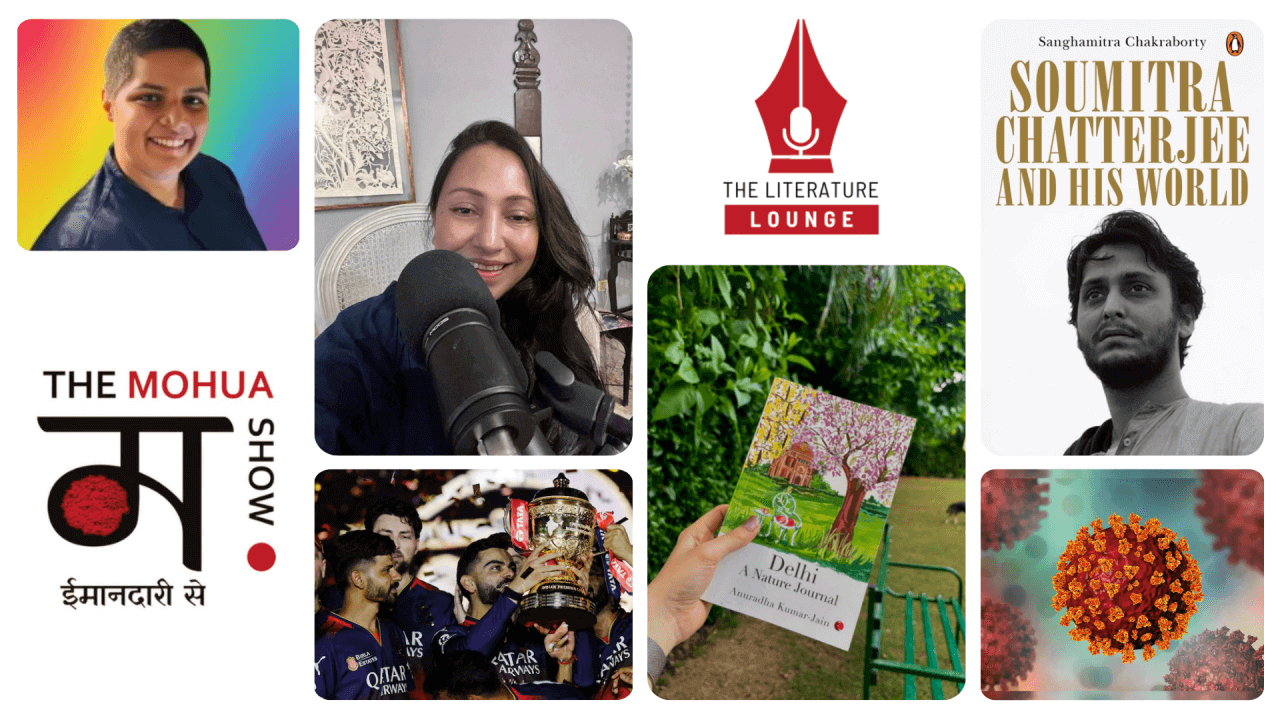Teen Choto Chamooch (Migrant Stories #1)
This is the first article in a series about the untold stories of displaced immigrants & migrants.
Sobha Das was waiting for days and nights for his return. After the storm broke into her paddy fields, she left Dhaka in search of her absconding husband who left one evening, promising her a better future and said he would go to India for better opportunities.
After many letters to an address unknown, she landed in Delhi and went around colonies and streets showing people her husband’s photograph and asking if they knew him. It was 1961 and people were kinder then. Most paid attention and were less suspicious of a young woman of 19 with those large limpid eyes and honest voice. Sobha was all of 5 ft, wheatish complexion with long hair and a slender gait. Some of the people she approached felt sorry for her, but what could they do?
She wears the Sari in the Bengali style and is easily recognizable with her accent and her white and red bangle on her thin wrists.
It was the summers of Delhi and the heat was at its peak. After her tiring search, this noon she had given up on life and the search for her lost husband. Fatigue and hopelessness was eating her up from the inside, starting from her starving belly and creeping into her heart.
In this dry and unforgiving heat, the vehicles in the distance looked like slivers of moving metal monsters on the large tarred roads of the capital. The streets were bigger and the people were ruder.
She turned her head on hearing the screeching of bus tyres and a man alighted the bus that had stopped in front of her. He was 5.8 ft in height, thin, with large eyes and a long nose. His eyes had a kind aura. She looked up and he stared at her and asked her in Bengali if she needed anything.
Those days of the early 50s & 60s most migrants flocked to a shared identity of familiarity. It gave their community a sense of belonging in a diaspora unknown to them. Most had fled wars, famines and all were displaced souls in lost lands in search of fortune and belonging. They lamented the past glory yet were fearful of return to the place left behind.
Tapan Das was also a immigrant, from Bangladesh’s Faridpur district.
Sobha narrated her story. He listened patiently. When she was done, without a moment’s hesitation, he offered to give her shelter if she would agree to help his widowed mother in the kitchen.
Sobha was too tired to argue. She agreed and thought to herself that this was better than the shelter for women, in which you have to muscle most nights for elbow space.
In the shelter she had often laid down and hypnotized herself to dream with her eyes wide open, of her home back in the village with the water pump, the well, the blackened soot filled egg basket and the yard with the mango & jackfruit tree, as the tear drops fell on the sides of her pillow.
Sobha walked into this kind man’s home and the mother could sense her pain, despite her own suspicion and skepticism. Some things are felt unsaid one woman to another. She welcomed her in. She gave her a change and Shobha bathed with a bucket full of water, had a plate full of rice with potatoes and ghee and slept under the fan like she was in deep coma.
As the days passed Sobha started helping the old lady in the kitchen who she called Ma and often the two ladies had arguments like any mother and daughter. On those days she sat near the full Tulsi plant and spoke in the Dhaka dialect of her incessant complains to the swaying plant. She believed Tulsi was listening to her and her messages would reach her family back home in Dhaka.
A year had passed.
Tapan Das asked Sobha one noon if she would marry him.
Ma had many mixed feelings, for reasons only known to herself, but in the end she was overjoyed that shy Tapan finally found a bride. Sobha became Mrs Das. Slowly and steadily she was in charge of the home and Tapan loved the fish curry that she made with onion seeds, tomato and fresh coriander.
She has three children with Tapan. Her favourite was Naru, the youngest of them all. He was bright and doting son.
Ma, during the hot summer afternoons, used to join the mohalla kirtan group of the displaced Bengalis in Delhi. The other women often gossiped about Sobha’s lineage and religion, which Ma entertained for a while, but she ended up defending her daughter in law. The minute she got home she wanted the cup of tea that Sobha had mastered over the years with just the right amount of sugar (“Teen choto chamooch”), milk and tea leaves. She never told her what they said about her.
Naru became an engineer who earned enough to build a beautiful home in Delhi with a huge Tulsi plant in the compound.
On Poornima nights, under the full moon, Sobha used to lament to the Tulsi tree in her yard, in a singsong way, to the utter horror of the Neighbours and the strays that began barking in unison to the cacophonous shrillness of her cries and complains. She still believed Tulsi was listening to her.
After her venting, she would get back to her business of the kitchen, home and her children. Life continued.
She was rather moody many a days and on some good days of Poornima, when the moon was resplendent in its glory, she told young women– who cribbed about jobs that didn’t come through or men who left them– her tale of how she lost her years searching for someone who had left her, to not return.
Sobha Das’s life teaches all women a lesson of recognizing new doors that give you a second chance in life for new beginnings.
She teaches us to recognize the right time to leave the party, the job or the toxic relationship.
In her own words, “don’t ever chase, just replace.”






Krishna
A very powerful statement in the end!